High time to save our rivers

It is disheartening that our rivers continue to face neglect despite its many consequences for the nation. This apathy is once again reflected in the findings of the Bangladesh Environmental Lawyers Association (BELA) that more than a fourth of rivers (37 out of 138) in the Khulna division are in dire straits due to encroachment, unplanned infrastructural development, siltation, industrial pollution, and the construction of man-made barriers. BELA also noted that 20 of these rivers are no longer flowing, while one—Hamkura—is on the brink of extinction.
It is not just in Khulna, but all across the country, that hundreds of rivers are dying or have lost their navigability because of greed as well as a lack of foresight by government bodies as reflected in the arbitrary construction of dams, embankments, sluice gates, and polders. A recent report by Prothom Alo highlighted another BELA finding about 35 rivers in the Sylhet division, which too are in distress. Unfortunately, there is no reliable official data on rivers facing such conditions, with figures from different government bodies contradicting each other. For example, as per the Water Development Board, Sylhet has only 36 rivers, but the National River Conservation Commission (NRCC) puts the number at 168. The commission's 2023 publication on the number of rivers in Bangladesh was also riddled with mistakes.
Until now, no government in Bangladesh has shown a genuine interest in freeing rivers from the grip of encroachers, polluters, illegal sand miners, etc. Neither were there any significant efforts to ensure coordination among the different agencies involved, or to conduct proper feasibility studies before building infrastructure that may disrupt river flow. However, since being appointed, the interim government's adviser for environment and water resources has issued several important directives. These include preparing a comprehensive list of rivers within two months and requiring action plans from divisional commissioners to evict 66,000 identified encroachers. She also expressed the government's intent to free at least one river in each division from encroachment and pollution.
Given how entrenched and widespread river encroachment has been, saving our rivers will be a massive and potentially disruptive task, requiring firm and even unpopular measures that may impact businesses and livelihoods. But that is doable for a non-political interim government if there is genuine intent. It is also vital that the NRCC is empowered to hold future governments accountable for any failure to protect our rivers. Public awareness campaigns are also essential to remind people of the importance of saving rivers.

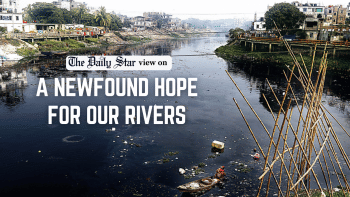
 For all latest news, follow The Daily Star's Google News channel.
For all latest news, follow The Daily Star's Google News channel. 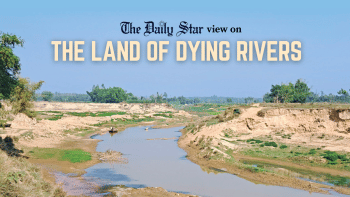
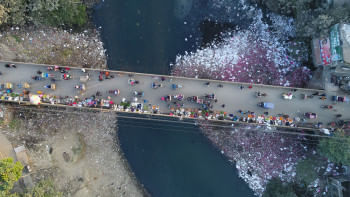


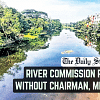
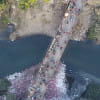


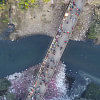


Comments